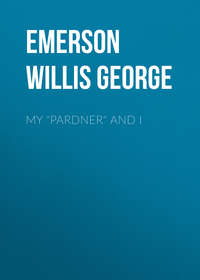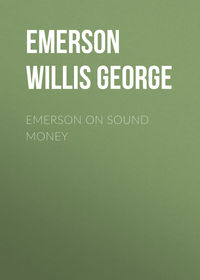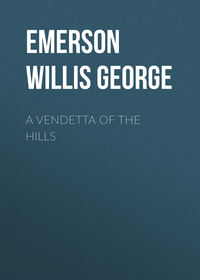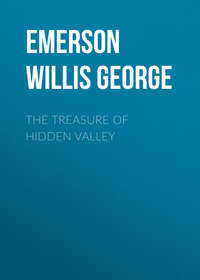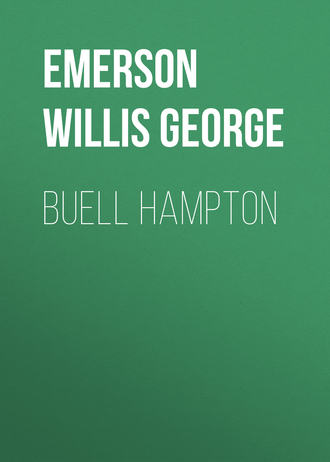 полная версия
полная версияBuell Hampton
“My dear Captain,” replied Hugh, “I feel it to be both a duty and a privilege to declare my love to Ethel Horton. I believe I love her, and I am ashamed of myself for having procrastinated as I have.”
“Are n’t you sure that it is love, my boy?” asked the captain.
“No,” replied Hugh. “I am impressed, however, that my interest in Ethel Horton is genuine, and I know that whatever I say to her will be sincere.”
“Well, you had better say it pretty quick,” observed the captain, gravely. “My wife tells me that the Englishman will be here to-morrow.”
“To-morrow,” repeated Hugh, looking at the captain in surprise.
“To-morrow,” repeated the captain, “and I fancy that, with all his English traits, bad manners, and poor taste, he will not dilly-dally as you have about asking a girl like Ethel Horton to become his wife.”
Hugh made no reply, but all day long he kept thinking of Ethel Horton. Sometimes Marie Hampton’s deep blue eyes would look at him from under their long lashes, and he would fancy that in their pleading sweetness he beheld a fascination that lost itself in mystery. He put it away from him, however, and went on thinking of Ethel.
That evening found him at the Grove. Ethel’s greeting was all that a hesitating lover could desire. She was seated in an easy chair on the wide veranda overlooking the terraced lawn and the lake. The cool breezes from the far-away foothills came gently down, gladdening the landscape with their refreshing breath.
Hugh seated himself near her, and they soon fell into a pleasant conversation. He fancied that there was less restraint in her manner and voice than usual, but in her soft brown eyes there was still a look of sadness. The fun-loving girl he had first known was now a subdued and saddened woman.
“I have something that I have long wanted to say to you,” said Hugh.
“Indeed?” she asked, listlessly, raising her eyes to his face.
“Yes, something I wanted to say long ago. I can hardly believe,” he went on, “that we have known each other only a year.” The flush had gone from his face as he spoke, and in its place had come an expression of uncertainty. Ethel moved uneasily in her chair. Her heart cried out, “Oh, Jack! Jack!” while her better judgment prompted her to look upon Hugh Stanton as a welcome avenue of escape.
“Ethel,” said he, and his voice was low and earnest, as he bent toward her, “I have come to-night to ask you to become my wife. I do not say that my feelings are those that are pictured sometimes in fiction; but, Ethel, the deep respect I have felt for you from our first meeting has ripened into a warm and intense feeling. I cannot pay you a higher compliment than I have in asking you to Become my wife. I am filled with a chivalrous sentiment that will not be satisfied unless the right is given me to protect and care for you.” He raised her hand to his lips, and kissed it deferentially. She did not seek to withdraw it, but remained silent.
When Hugh looked at her face, he saw that her eyes were full of tears. She was gazing far away across the brown prairie.
“Yes, Hugh,” she finally faltered, “you have, indeed, paid me a compliment – the greatest that man can pay to woman, but I fear that you would not be satisfied with what I have to give.”
“Satisfied!” cried Hugh, in the excitement of the moment, “satisfied? Why, Ethel, tell me that you care for me, and it will make me the happiest man in the world.”
There was a pitiful look in her eyes as they rested on his face.
“Hugh,” she said very slowly, “it is a woman’s heart that an earnest man desires when he asks a woman to become his wife. My heart is like the worm-eaten rosebud, – it is the semblance of what you seek, not the reality.”
Hugh imagined that she referred to Lord Avondale, and, again, he told himself that it could not be true, – that she surely was not grieving for him.
“Listen, Hugh,” she went on, “listen, while I tell you of a great love which grew up in my heart almost in a day, and which flourishes and grows stronger with each passing hour. The fear that my love is unreciprocated has grown almost to certainty. The love still remains, – but hear my story, and then, – then, Hugh, if you still wish me to be your wife, after you have had time to think it over, my answer shall be as you wish.” She then told him briefly of Jack Redfield, and of the great love that had come to her on the shores of Lake Geneva, – a love for him that must abide forever, – although he, perhaps, had already forgotten, as he had so long left her letter unanswered. Hugh’s astonishment was very great, – he was stunned, – but he did not mention the fact that he even knew Jack Redfield.
When she had finished her narration, he asked: “What of Lord Avondale?”
“Oh, Hugh,” she replied, “I shall marry you, if at all, to escape that calamity. Do you not feel honored,” she said, smiling through her tears, “at the use I may make of your devotion?”
“My devotion is very great; it is eternal, Ethel,” replied Hugh, huskily.
“Understand, Hugh,” said Ethel, “my respect and confidence in you are almost limitless. Indeed, I have come to look upon you as a tower of strength. It is my desire that you should deliberate long and earnestly before you arrive at a conclusion. When you have done this, Hugh, know that your wishes shall be mine.”
They had arisen from their chairs, and were standing near the edge of the veranda. When Ethel ceased speaking, Hugh remained silent for a long time. He finally said:
“Ethel, my little girl, I feel more than ever that I have a duty to perform, and that duty is to protect you.” He lifted her hand again to his lips, and then hurried away. A little later he was galloping madly across the prairie toward Meade, where he was soon in the privacy of his own room.
For the first time in his life, he believed Jack Redfield to be a scoundrel. All his chivalrous manhood had been aroused by Ethel’s story, and he determined to protect her – though it cost him his life.
Through the long, weary hours of the night he paced restlessly back and forth in his room, nor did he seek his pillow until the gray of another day had dawned – the day that brought Lord Avondale again to Meade.
CHAPTER XXVII. – THE HOT WINDS
LORD AVONDALE took up his residence, as before, at the Osborn Hotel. He called frequently at the Hortons’, and was also much in Mrs. Osborn’s society. The tongue of gossip was again beginning to wag. She and the Englishman renewed their relations afresh, and went on with a boldness that might almost cause one to doubt the truthfulness of the rumors.
Lord Avondale’s self-conceit and audacity were more apparent than on his former visit. He felt sure that Ethel Horton would soon become his wife; and he not only entreated, but commanded Lucy Osborn to hasten the affair along, as he was impatient to return to England.
Hugh, in the meantime, was following Ethel’s advice, and deliberating most earnestly as to what was best to do. He could not understand why his old friend, Jack Redfield, whom he had always regarded as the personification of honor, had acted in such an inexplicable manner toward Ethel Horton. If Ethel had not told him of her love for Jack Redfield, the way out of the dilemma might have been very simple. In that event, he would have married her at once, and sent the English lord about his business.
It was nearing the last days of June. The cool night breeze, so exhilarating in the Southwest, died away each morning as the dawn streaked the east, and the sun climbed above the horizon. The limitless sky bent above the earth in silence and grandeur. No breath of air stirred leaf, or flower, or grass-blade. It was but one of a hundred such quiet, perfect days, on any one of which you might have searched the heavens from horizon to horizon and found neither cloud nor the semblance of one; silent, hazy Indian summer days. The bountiful fields of wheat and barley were beginning to yellow with golden promise. The farmers said that the wheat and arley were almost out of “the milk,” and in the “dough,” and, while the dry weather would prevent the kernels from filling as in former years, yet, after all, there would be a fair yield. The cattlemen laughed and said, “Wait, and you’ll see whether the Southwest is an agricultural paradise or a cattle range.”
The farmers, however, were not easily discouraged. They pointed with pride to the thousands of acres of growing corn, and said, “See how rapidly it is growing. It is not firing, even at the roots, to speak of, and its color is such a dark healthy green; it is so luxuriant and tall, with its broad bending blades, – so stately, indeed that a squadron of cavalry might ride a few rods into the edge of the field and be hidden from view.” The farmers expressed a firm belief that the corn, which was beginning to “tassel” and “silk,” would have plenty of rain to make it “ear” well, and that an abundant yield would reward their labors, even though the small grain should happen to prove a light crop.
It was, perhaps, ten o’clock one morning when Hugh walked down the street from the hotel to the bank. Major Buell Hampton and Captain Osborn were discussing the weather. They were standing on the sidewalk in front of the banking-house, and several townspeople, cattlemen, and farmers had congregated around them; and the discussion of a possible crop failure became general.
“‘Pears to be mighty sultry on the range these ‘ere days,” said Dan Spencer, as he borrowed a chew of tobacco from his neighbor. “Speakin’ careless-like, I don’t reckon this dog-goned dry weather kin loaf ‘round much longer. I’m ‘lowin’ the water’s sure ‘nuff all dried up in Crooked Creek; dang my buttons if it ain’t.”
“Mighty sorry fur you farmer fellers,” observed Bill Kinneman, patronizingly. “I’m not hankerin’ to be onpop’lar, but you jist wait an’ you-alls ‘ll see what kind uv a farmin’ country this is.”
“It is either a farming country,” said Hugh to Captain Osborn, “or else our bank is located in the wrong part of the world.”
“Country’s all right, my boy,” replied Captain Osborn. “Don’t get disheartened. We’ll have rain before many days.”
“Now, look ‘e ‘ere, boys,” said Judge Linus Lynn, who had joined the group a few minutes before and caught the drift of their conversation. “Let me tell you what’s goin’ to happen. I am no tenderfoot – say, what’s all you fellers laughin’ at, anyway? Can’t a graduate of a jagcure make a few sober remarks without bein’ giggled at, I’d like to know. If you fellers had just a little wit – but you hain’t got it – to put with yer giggles, you’d have sarcasm. You bet!”
“Hain’t you tasted no corn-juice yit, Jedge, fur sure?” asked Dan Spencer, laughing.
“Not a dangnation swallow!” replied Judge Lynn, emphatically. “I took my friend Major Hampton’s advice, availed myself of the gold cure at his expense, an’ by the great horn spoon, I’ll never drink nary another drop; no, sirree. Bin shakin’ hands with the back end of drug stores, partin’ company with my good cash, an’ bein’ bit with the same old snake long enough. Oh, I know when I’ve got enough of even a bad thing. Bet yer life I do. Now as I was goin’ to say, I’m no tenderfoot. I’ve lived in Kansas twenty years. Uster gather up buffalo-bones from these prairies with a yoke of oxen, haul ‘em two hundred miles an’ sell ‘em’ at ten dollars a load. Yes, sir; think I don’t know what I’m talkin’ about? Bet yer life I do.”
“I should nach’ally hev thought you’d bin a rich man afore this, Jedge,” said Bill Kinneman.
“Oh, you’d thought that, would you?” replied the judge. “I’ve heard you tell how to get rich, Kinneman, fur the las’ ten years. Fact is, if every man was to get rich who believes he knows how, we’d have no paupers.”
“Say, Jedge, we’re goin’ to hev hot winds, ain’t we?” asked Dan Spencer, grinning. “Thet’s what you’ve bin preachin’ fur the last three years, ain’t it, boys?”
“Gee whillikens!” exclaimed the judge, “did you feel that? That’s a hot wind, sure as you’re born.”
“Oh, no, Judge,” said Captain Osborn, “that could hardly be called a hot wind. Still, it is rather warm.”
“Gentlemen,” said Major Hampton, as he moved along with the crowd on the sidewalk to a point somewhat sheltered from the wind, “if Judge Lynn is correct, and we do not have rain soon, the growing crops will be seriously injured.”
Judge Linus Lynn walked on down to the corner of the building, where the wind was unobstructed, and, hastily returning, said, “The jig’s up, boys, an’ bets are all off. The hot winds of hell are sweepin’ the plains; bet yer life they are. The wolves will sure’nuff scratch the varnish off the front door of the new town hall and dig holes in the public square this winter, if this dangnation holycaust of hot wind keeps on Mowin’ very long. You bet I know a thing or two.”
The hot wind began blowing a regular gale, and soon the crowd disappeared. All feeling of merriment gave way before the contemplation of the ravaging blast that was hourly doing irreparable damage to the growing crops. As the day advanced, the wind became hotter and hotter, until not a soul was visible on the streets of Meade. People hastened to their homes, offices, and stores for shelter, and shut themselves away from the intensely suffocating air. A few minutes’ exposure would blister the face and hands of the hardiest farmer.
On rushed the scorching wave, – its wilting breath shriveling up every growing thing as effectually as a prairie fire, – everything excepting the native buffalo-grass, the cacti, and the sunflowers. The grass it cured, and made more sweet and fattening for the cattlemen’s herds.
The thermometer registered 102 degrees in the shade. The following day it ran up to 108 degrees, – next day it registered 114 degrees, while on the fourth day of this terribly heated blast of parching, burning winds, the mercury reached 119 degrees in the shade.
It was a suffocation indescribable, dealing relentless death to the agricultural hopes of the great Southwest. It was like some intense heat driven from thousands of furnaces, where limitless quantities of anthracite burn with blue and forked flames, creating heat sufficient to change even the very rocks into liquid. For a hundred hours this stifling, burning breath belched forth from the jaws of calamitous destruction. Utter devastation followed.
On the first day, the fields of growing corn seemed to shrink in timidity; on the second day the proud plumage of tassels drooped on the stalks; on the third day the blades whitened and shriveled and became like some aged and decrepit thing; while on the fourth day the tassels, blades, and even the stalks were snapped off in their parched brittleness and scattered by the winds of this terrific tornado of heat.
The fields were swept of every vestige of growing grain. The entire country became a desolate waste. For a hundred miles in every direction no living vegetation, planted by the hand of man, survived. The hopes, the labors, and the achievements of years were alike swept into the vortex of absolute ruin; and these farmers in the Southwest beheld the Great American Desert, as depicted by the earlier geographers, in all its primitive awfulness.
Farmers became mendicants; business men, paupers; while notes and bonds in the bankers’ hands turned into worthless assets. A cry went up from the starving thousands, and once more train-loads of provisions came from the East for the relief of the Kansas sufferers.
John B. Horton, the cattle king, caused hundreds of beeves to be brought in from the range, and he opened a free market on the public square of Meade, to feed the destitute and hungry.
CHAPTER XXVIII. – “THY WILL BE DONE”
A FEW days after the country had been devastated by the hot winds, Hugh met Major Hampton on the street.
“Come on,” said the major, “I am going over to the Patriot office, and I want to have a talk with you.”
“All right,” replied Hugh; “financially, I am ruined; and I now have more time on my hands than anything else.”
On reaching the major’s den at the Patriot office, he turned to Hugh and said, “I can distinctly see, Mr. Stanton, that there’s something on your mind. Perhaps you’d like to ask my advice. If so, you need not be backward.”
Hugh laughed good-naturedly, as he puffed a ring of cigar smoke toward the ceiling. “Well,” he replied, “bankruptcy stares us in the face. Our bank, in all probability, will have to close its doors. Is not that quite enough to have on one’s mind?”
“Quite enough,” replied the major, “but there is something else that is worrying you. Come, what is it?”
“I almost believe, Major, that you are a mind-reader,” replied Hugh.
“Oh, I am a student,” replied the major, “and it would be strange, indeed, if I had not made some progress in all my years of study.”
“Well, I will ask you a question,” said Hugh. “If something you coveted very much were within your grasp, and you should awaken to find that it really belonged to another – some one whom you believed unworthy of the prize – what would you do?”
The major lay back on the lounge, and, after deliberating fora moment, replied: “From a selfish standpoint, I would secure for myself that which I coveted; but from an altruistic standpoint, it would be mean, low, and contemptible to take an unfair advantage of one’s equals, and much worse to take advantage of one’s inferiors. Again, the prize coveted should not be made a football, to toss about for transitory pleasure. One becomes a social outcast when he loves himself better than he loves his neighbor.”
The major’s reply struck home, and Hugh was noticeably ill at ease. Presently he said, “Major, what is going to become of the Southwest? The crops are all burned up, – our bank securities are worthless. Financially, I am a ruined man.”
“Help the poor,” replied the major. “Personally I have laid something away that will help me to accomplish charitable purposes toward the ever increasing army of unfortunates. Next year the crops may be better. I believe it is in my power to put you in a way to retrieve some of your lost fortune, and at the same time enable you to benefit mankind.”
“In what way?” asked Hugh, eagerly.
The major hesitated for a few moments, and then said: “I do not feel at liberty to explain just now, but I will think it over for a day or two, and if I can be of service to you, Stanton, you will find me a true friend. My keenest pleasure is in befriending those in need of help, and wreathing the face of pain and sorrow with smiles of gladness.”
“Thank you, Major,” replied Hugh, “It’s very kind of you, I am sure, and I shall wait with impatience for any suggestions that you may have to offer.”
That evening Hugh called at the major’s house. He quite forgot his losses and the ruined condition of the country in the pleasant conversation with the major and his daughter. The music, which formed a feature of the evening, was concluded by Marie singing a selection from Tannhbuser.
As Hugh was getting ready to bid his host good night, the major said: “Stanton, I am exceedingly glad you came to-night; I feel ennobled, – feel that it is good to live and that my days have been lengthened. The true epicurean of rationalism teaches us that the good and bad in man are engaged in a constant combat, and even the bad can better enjoy occasional indulgence by permitting the good to rule most of the time.” It struck Hugh as being an odd remark for the major to make.
After bidding them good night, he walked hurriedly along the street toward the hotel in a thoughtful mood. When he reached his room, he sat down by the open window, determined to reach a decision in regard to Ethel Horton.
He had now been in Meade a little over a year. His inheritance of fifty thousand dollars from his father’s estate had been swept away by the hot winds, and the securities which he held, bearing a high rate of interest, were practically worthless. The cattlemen were the only people who had not suffered by the cancerous breath that had swept over the country.
Ethel had trusted him to decide a momentous question. If he decided one way, Ethel Horton would become his wife. A voice whispered to him from the night wind, “Do this, and you need not care for the fortune you have lost. Ethel is the only child and heiress to millions.”
“No,” shouted Hugh, vehemently, starting up as if combating with the tempter, “no, that is a contemptible, cowardly thought. It is true that to-day poverty with her sable robe envelops me, and that a fortune is mine if I will only reach out and take it – a fortune that will make me a Croesus, while a resigned and heart-broken woman is ready to lift up her fair white arms to me as her savior, if I – I, Hugh Stanton – am willing to place upon her lips the kiss of a Judas. Shall I do it?” Conscience pricked him to a decision, and he fairly shouted, “Never, never, so long as my soul is in partnership with God Almighty.” His clenched fist struck the table. His victory was complete.
Seating himself at his desk, he hastily wrote the following letter:
“My dear Jack: – About a year ago I called on you and said good-bye. Forgive me for not writing before. Jack, this letter must determine whether I ever again address you as a friend. I have met Ethel Horton, and have learned – God knows the price of the wisdom – that her heart is wholly yours. Why have you trampled upon it? If you are an honorable man, as I have ever believed you to be, answer her letter, or, better still, come to me at once. I regard her as one of the noblest girls in the wide, wide world. If the love which you whispered to her at Lake Geneva was not sincere, then I am no longer your friend, but shall ever remain your enemy.
“Awaiting an answer, I am“Your friend,“Hugh Stanton.”He enclosed this letter in an envelope and addressed it to Jack Redfield. He then wrote the following:
“My dear Ethel: – Only God knows how earnestly I have deliberated and prayed over the question which you commissioned me to decide. Since I saw you last, my thoughts have been given to this one subject. I feel exalted to-night. My soul has arisen from the mists of doubt and uncertainty, – and, I hope, selfishness, – and the way seems clearer to me. My regard for you remains unchanged, but I will not insist on your becoming my wife. To do this would prove me cowardly, selfish, and unjust. To pursue the course I have marked out, will, I trust, demonstrate ere long, – not only that I am unselfish where you are concerned, but also that I am securing a greater happiness for you than you could possibly know if our lives were more closely linked together. Do not think that I have arrived at this conclusion hastily, – far from it. It has cost me much suffering and many heartaches. You spoke of a calamity, – be patient and wait; an avenue of escape, bordered with fairest flowers, awaits you.
“Affectionately your friend,“Hugh,”After this letter was written, sealed, and addressed to Ethel Horton, Hugh paced the room, weighing the justice of his conclusion. Yes, he believed he had acted honorably.
Notwithstanding the lateness of the hour, he went out and posted his letter to Jack Redfield; then, mounting his horse, he galloped away across the prairie toward Horton’s Grove. As he neared the place, he met Mrs. Osborn’s turnout, and he noticed, as it passed him, that Lord Avondale accompanied her. Dismounting and hitching his horse, he walked along the winding path, and was fortunate in meeting one of the servants. After securing her promise that the letter would be delivered at once to Miss Ethel, he dropped a coin into her hand and, turning back, was soon riding homeward.
When Ethel had broken the seal and read Hugh’s letter, no tears came to her eyes, but, as she put it from her, a stony expression was on her face. “He has no use for the worm-eaten rose,” said she to herself, “that’s what his letter means. A girl’s artificiality is forced upon her in this cold, scheming world. I long to get away from it all. Oh, Hugh, my fancied tower of strength, – you, too, are crumbling. The environments are closing around me. I presume resistance is almost useless. Nothing will satisfy them but a human sacrifice on the altar of a questionable nobility, and a repetition of the old fable of the earthen and iron pots drifting down the stream together.”
Mrs. J. Bruce-Horton was looking out of her window and recognized Hugh Stanton as he came up the path. She surmised that he had brought some communication for Ethel, and she determined to make sure before retiring. She rapped at Ethel’s door, and, without further announcement, made her appearance in her daughter’s room.


